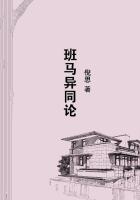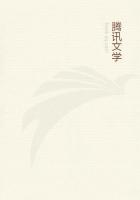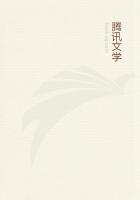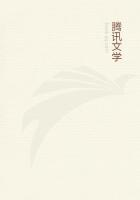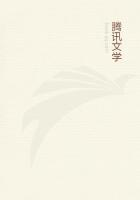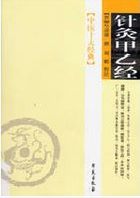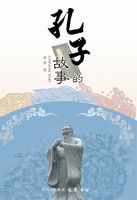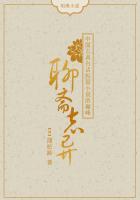If these happy democrats could prove their case, they would strike democracy dead. If the poor are thus utterly demoralized, it may or may not be practical to raise them. But it is certainly quite practical to disfranchise them. If the man with a bad bedroom cannot give a good vote, then the first and swiftest deduction is that he shall give no vote. The governing class may not unreasonably say:
"It may take us some time to reform his bedroom. But if he is the brute you say, it will take him very little time to ruin our country.
Therefore we will take your hint and not give him the chance."
It fills me with horrible amusement to observe the way in which the earnest Socialist industriously lays the foundation of all aristocracy, expatiating blandly upon the evident unfitness of the poor to rule.
It is like listening to somebody at an evening party apologising for entering without evening dress, and explaining that he had recently been intoxicated, had a personal habit of taking off his clothes in the street, and had, moreover, only just changed from prison uniform. At any moment, one feels, the host might say that really, if it was as bad as that, he need not come in at all.
So it is when the ordinary Socialist, with a beaming face, proves that the poor, after their smashing experiences, cannot be really trustworthy. At any moment the rich may say, "Very well, then, we won't trust them," and bang the door in his face.
On the basis of Mr. Blatchford's view of heredity and environment, the case for the aristocracy is quite overwhelming. If clean homes and clean air make clean souls, why not give the power (for the present at any rate) to those who undoubtedly have the clean air?
If better conditions will make the poor more fit to govern themselves, why should not better conditions already make the rich more fit to govern them? On the ordinary environment argument the matter is fairly manifest. The comfortable class must be merely our vanguard in Utopia.
Is there any answer to the proposition that those who have had the best opportunities will probably be our best guides?
Is there any answer to the argument that those who have breathed clean air had better decide for those who have breathed foul?
As far as I know, there is only one answer, and that answer is Christianity. Only the Christian Church can offer any rational objection to a complete confidence in the rich. For she has maintained from the beginning that the danger was not in man's environment, but in man. Further, she has maintained that if we come to talk of a dangerous environment, the most dangerous environment of all is the commodious environment. I know that the most modern manufacture has been really occupied in trying to produce an abnormally large needle.
I know that the most recent biologists have been chiefly anxious to discover a very small camel. But if we diminish the camel to his smallest, or open the eye of the needle to its largest--if, in short, we assume the words of Christ to have meant the very least that they could mean, His words must at the very least mean this--that rich men are not very likely to be morally trustworthy.
Christianity even when watered down is hot enough to boil all modern society to rags. The mere minimum of the Church would be a deadly ultimatum to the world. For the whole modern world is absolutely based on the assumption, not that the rich are necessary (which is tenable), but that the rich are trustworthy, which (for a Christian) is not tenable. You will hear everlastingly, in all discussions about newspapers, companies, aristocracies, or party politics, this argument that the rich man cannot be bribed. The fact is, of course, that the rich man is bribed; he has been bribed already.
That is why he is a rich man. The whole case for Christianity is that a man who is dependent upon the luxuries of this life is a corrupt man, spiritually corrupt, politically corrupt, financially corrupt.
There is one thing that Christ and all the Christian saints have said with a sort of savage monotony. They have said simply that to be rich is to be in peculiar danger of moral wreck.
It is not demonstrably un-Christian to kill the rich as violators of definable justice. It is not demonstrably un-Christian to crown the rich as convenient rulers of society. It is not certainly un-Christian to rebel against the rich or to submit to the rich.
But it is quite certainly un-Christian to trust the rich, to regard the rich as more morally safe than the poor. A Christian may consistently say, "I respect that man's rank, although he takes bribes."
But a Christian cannot say, as all modern men are saying at lunch and breakfast, "a man of that rank would not take bribes."
For it is a part of Christian dogma that any man in any rank may take bribes. It is a part of Christian dogma; it also happens by a curious coincidence that it is a part of obvious human history.
When people say that a man "in that position" would be incorruptible, there is no need to bring Christianity into the discussion. Was Lord Bacon a bootblack? Was the Duke of Marlborough a crossing sweeper?
In the best Utopia, I must be prepared for the moral fall of any man in any position at any moment; especially for my fall from my position at this moment.
Much vague and sentimental journalism has been poured out to the effect that Christianity is akin to democracy, and most of it is scarcely strong or clear enough to refute the fact that the two things have often quarrelled. The real ground upon which Christianity and democracy are one is very much deeper. The one specially and peculiarly un-Christian idea is the idea of Carlyle--the idea that the man should rule who feels that he can rule.
Whatever else is Christian, this is heathen. If our faith comments on government at all, its comment must be this--that the man should rule who does NOT think that he can rule. Carlyle's hero may say, "I will be king"; but the Christian saint must say "Nolo episcopari."

